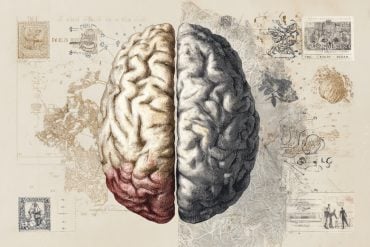Summary: While optimism is often celebrated, a new study reveals that excessive optimism can lead to poor decision-making, particularly in financial matters. The research shows that individuals with high cognitive ability tend to be more realistic and pessimistic in their future expectations, while those with lower cognitive ability lean towards excessive optimism.
This optimistic bias can result in risky financial behaviors, inadequate savings, and poor choices, especially in situations involving uncertainty.
Key Facts:
- Excessive optimism is associated with lower cognitive skills, such as verbal fluency, fluid reasoning, numerical reasoning, and memory.
- Unrealistic financial expectations driven by excessive optimism can lead to high consumption, debt, and business failures.
- Individuals with higher cognitive ability are better at balancing optimism with realism in important decision-making processes.
Source: University of Bath
Optimistic thinking has long been immortalized in self-help books as the key to happiness, good health and longevity but it can also lead to poor decision-making, with particularly serious implications for people’s financial well-being.
Research, published in Personality and Social Psychology Bulletin, from the University of Bath shows that excessive optimism is actually associated with lower cognitive skills such as verbal fluency, fluid reasoning, numerical reasoning, and memory. Whereas those high on cognitive ability tend to be both more realistic and pessimistic in their expectations about the future.
“Forecasting the future with accuracy is difficult and for that reason we might expect those with low cognitive ability to make more errors in judgments, both pessimistic and optimistic. But the results are clear: low cognitive ability leads to more self-flattering biases—people essentially deluding themselves to a degree,” said Dr. Chris Dawson of the University’s School of Management.
“This points to the idea that while humans may be primed by evolution to expect the best, those high on cognitive ability are more able to override this automatic response when it comes to important decisions. Plans based on overly optimistic beliefs make for poor decisions and are bound to deliver worse outcomes than would realistic beliefs,” Dr. Dawson added.
Decisions on major financial issues such as employment, investments or savings, and any choice involving risk and uncertainty, were particularly prone to this effect and posed serious implications for individuals.
“Unrealistically optimistic financial expectations can lead to excessive levels of consumption and debt, as well as insufficient savings. It can also lead to excessive business entries and subsequent failures.
“The chances of starting a successful business are tiny, but optimists always think they have a shot and will start businesses destined to fail,” Dr. Dawson said.
The study, “Looking on the (B)right Side of Life: Cognitive Ability and Miscalibrated Financial Expectations,” took data from a UK survey of over 36,000 households and looked at people’s expectations of their financial well-being and compared them with their actual financial outcomes.
“The research found that those highest on cognitive ability experienced a 22% increase in the probability of “realism” and a 35% decrease in the probability of “extreme optimism.”
“The problem with our being programmed to think positively is that it can adversely affect our quality of decision-making, particularly when we have to make serious decisions. We need to be able to over-ride that and this research shows that people with high cognitive ability manage this better than those with low cognitive ability,” he said.
“Unrealistic optimism is one of the most pervasive human traits and research has shown people consistently underestimate the negative and accentuate the positive. The concept of ‘positive thinking’ is almost unquestioningly embedded in our culture—and it would be healthy to revisit that belief,” Dr. Dawson added.
About this cognition and decision-making research news
Author: Chris Dawson
Source: University of Bath
Contact: Chris Dawson – University of Bath
Image: The image is credited to Neuroscience News
Original Research: Open access.
“Looking on the (B)right Side of Life: Cognitive Ability and Miscalibrated Financial Expectations” by Chris Dawson. Personality and Social Psychology Bulletin
Abstract
Looking on the (B)right Side of Life: Cognitive Ability and Miscalibrated Financial Expectations
It is a puzzle why humans tend toward unrealistic optimism, as it can lead to excessively risky behavior and a failure to take precautionary action.
Using data from a large nationally representative U.K. sample (N=36,312), our claim is that optimism bias is partly a consequence of low cognition—as measured by a broad range of cognitive skills, including memory, verbal fluency, fluid reasoning and numerical reasoning.
We operationalize unrealistic optimism as the difference between a person’s financial expectation and the financial realization that follows, measured annually over a decade.
All else being equal, those highest on cognitive ability experience a 22% (53.2%) increase in the probability of realism (pessimism) and a 34.8% reduction in optimism compared with those lowest on cognitive ability.
This suggests that the negative consequences of an excessively optimistic mindset may, in part, be a side product of the true driver, low cognitive ability.








